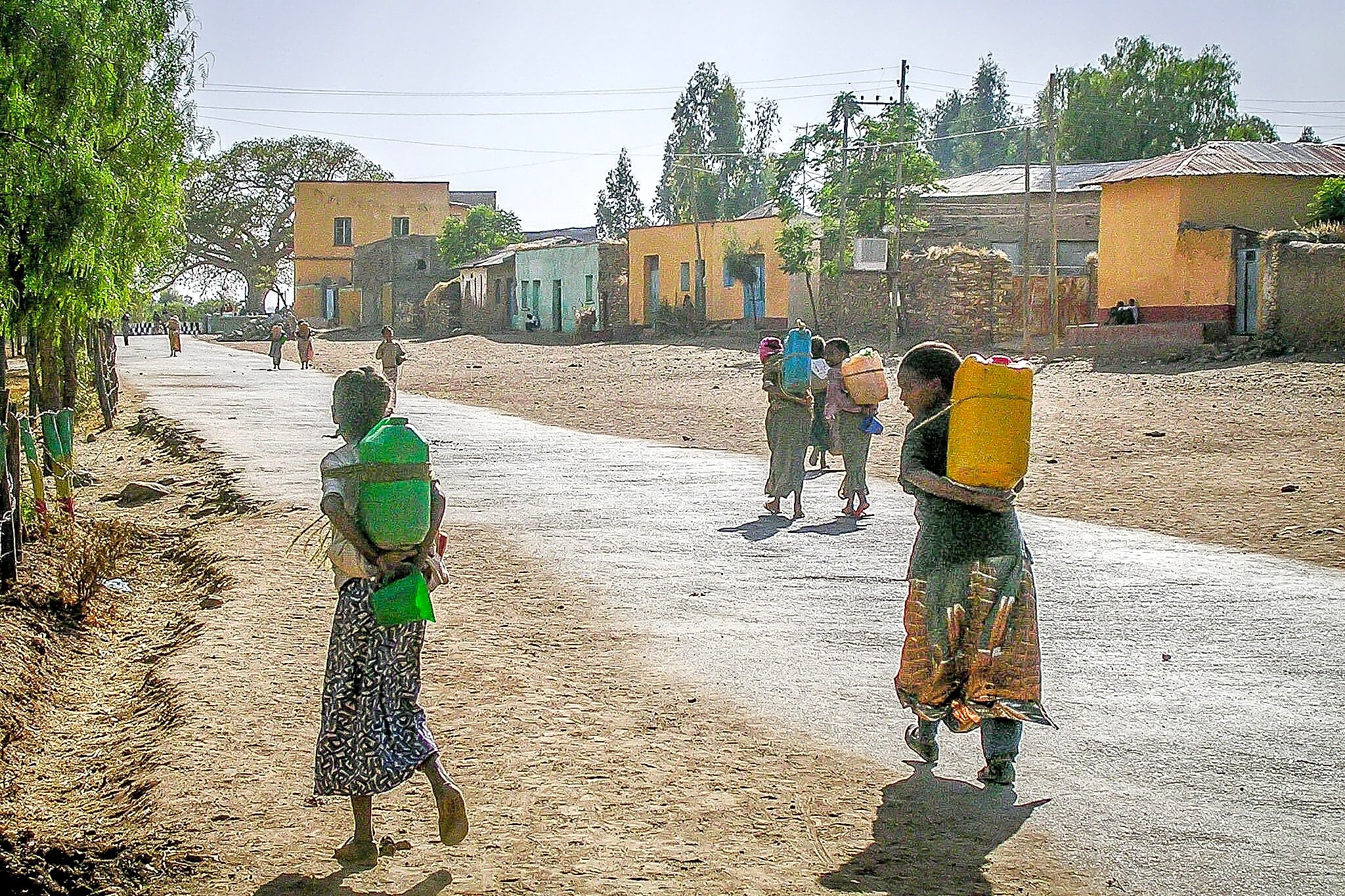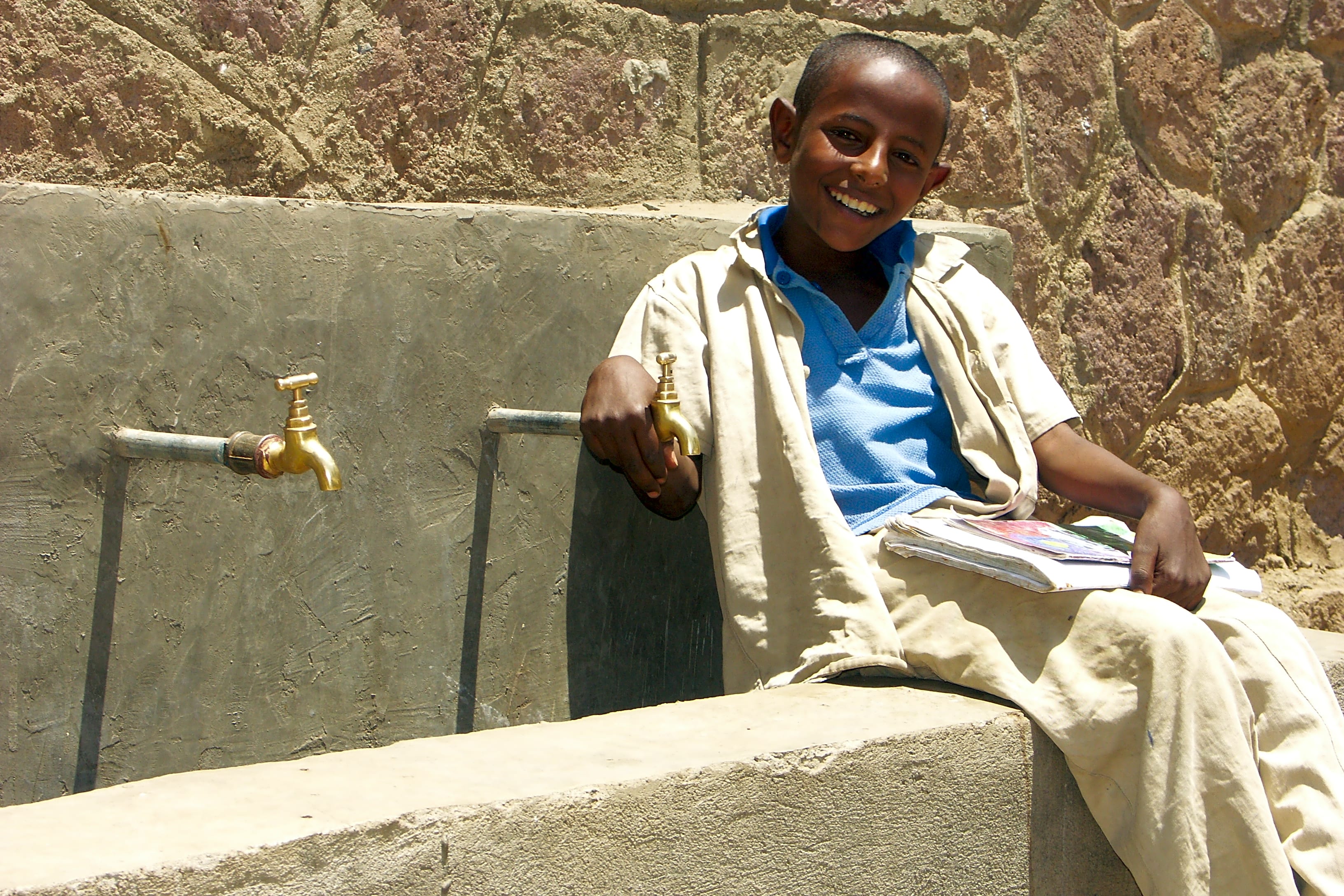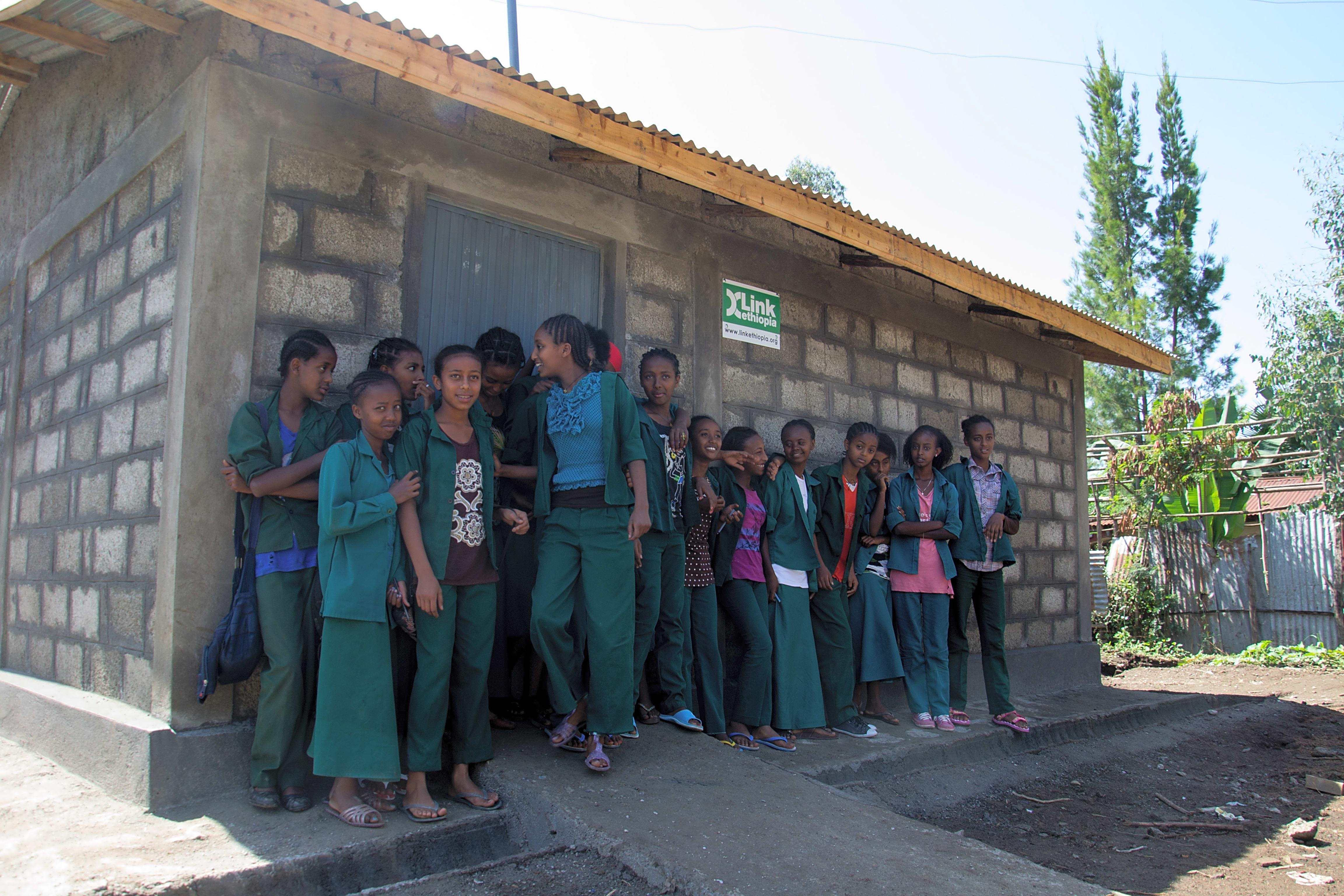Good hygiene in schools is essential not only to provide a comfortable learning environment for students but also to reduce student absences, illness and even death from diseases caused by poor hygiene. In 2010, 96,000 Ethiopian children under five died from pneumonia and diarrhoea, the fifth most afflicted country in the world. Both diseases can be mitigated by proper hand washing techniques.
As well as a lack of toilets and wash stations, many Ethiopian schools find it difficult to maintain existing toilets and proper hand-washing is rarely taught or practised. On school visits, it is common to see evidence of defecating around toilets rather than in them. As a rule, students have no access to soap to wash their hands after they go to the toilet and before they eat.

Why It Matters

Access to Water
As most households have to collect their water, school children are expected to collect the water they need for school, especially young girls. This means all the water they will need for drinking or sanitary purposes. The presence of water already at the schools reduces the time spent on this chore, which leads to more time spent on schoolwork and studying. The lack of water also affects children’s energy levels, since many of them attempt to collect the water they need before school, they can often be late to school or drained of their energy by the time they make it to school.

Hygiene
Access to clean water and sanitation facilities also allows for increased health for students and staff at schools. Diseases, such as diarrhoea, become more likely with no WaSH facilities. In fact, schools with poor water, hygiene and sanitation are high risk environments for children and staff, and exacerbate children’s susceptibility to environmental health hazards.1

Menstruation
The presence of toilet blocks provides the privacy and sanitary facilities necessary for young girls to continue going to school even while on their periods. Unfortunately, there is still a stigma that attaches to menstruation, which means that young girls tend to be embarrassed while on their periods and many stay home if they do not have access to private toilet facilities at school. Additionally, the presence of private sanitation facilities reduces the risk of sexual harassment or assault to young girls and women when using toilet facilities or collecting water.
1 Tesfu, Mahider. “Growing up without WASH: Case study research into the effects of poor access to water, sanitation and hygiene on children in Ethiopia”. WaterAid, 2011.
Donate
If you would like to donate specifically to any of these projects then please click here and send an email to [email protected] to let us know that this is the project you want to support.